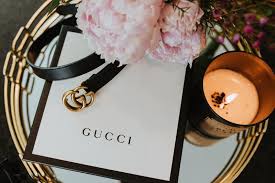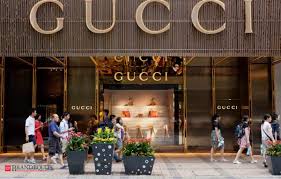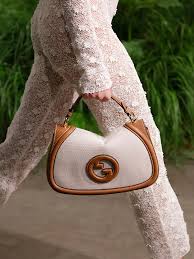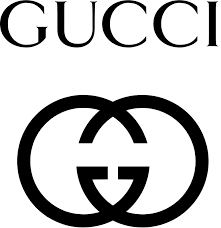Introduction
Gucci is one of the most renowned luxury brands globally. For more than a century, it has epitomized elegance, sophistication, and modernity. Born as a humble leather goods shop in Florence, Italy, it evolved into a global icon of luxury. It has been the embodiment of transformation and innovation without compromising its deep heritage.
The Early Years
Founded in 1921, Guccio Gucci, after serving at the luxury hotels in London and Paris, set up a small leather goods and luggage workshop. Inspired by the refined tastes of aristocrats and travelers he served at the hotels he worked for, it sought to bring together the Italian craft with cosmopolitan luxury, the vanguard that would shapes it heritage.
The brand was known for making quality leather pieces, especially leather travel accessories in the 1930s. The early rise of it can be largely attributed to commitment to craftsmanship and innovation, particularly during the critical period of World War II, in which the firm started using substitutes such as hemp and jute due to lack of leather during that time.

Iconic Designs of Gucci
Gucci’s designs have become the epitome of timeless sophistication and bold creativity. Among the most iconic creations are:
The Bamboo Bag (1947): This handbag, with its curved bamboo handle, was one of the first to be produced during post-war material shortages. It became a symbol of resilience and style.
The Horsebit Loafer (1953): This shoe is a staple in both men’s and women’s wardrobes, combining classic style with a touch of equestrian inspiration.
The GG Logo: Launched in the 1960s, the interlocking “GG” logo is now a worldwide symbol of luxury.
The Flora Scarf (1966): Designed for Princess Grace of Monaco, this colorful, nature-inspired design demonstrates it’s artistic sense.
Gucci in the Modern Era
Gucci’s entry into modern luxury was marked by bold creative decisions, especially under the leadership of visionaries like Tom Ford and Alessandro Michele.
Tom Ford Era (1994–2004): Tom Ford revived it with his bold and provocative designs, which combined sensuality with sleek minimalism. His leadership brought the brand back to the forefront of luxury fashion during the 1990s.
Alessandro Michele Era (2015–2022): Alessandro Michele redefined it’s image with a maximalist approach, celebrating eclecticism, gender fluidity, and bold, artistic expressions. His designs resonated with a younger audience, making it a favorite among millennials and Gen Z.

Gucci’s Innovations and Collaborations
Gucci has continuously evolved, embracing innovation while staying true to its heritage. Notable advancements and partnerships include:
Digital Transformation: It was a forerunner in marrying fashion with technology by using augmented reality (AR) features, virtual try-ons, and digital fashion shows.
Collaborations: The brand collaborated with artists, designers, and even gaming platforms like a collaboration with Roblox to expand its audience base.
Sustainability Initiatives: Gucci was dedicated to sustainability by the usage of eco-friendly materials, carbon footprints, and supporting wildlife.

Global Impact by Gucci
As one of the most sought-after luxury brands, Gucci’s influence extends beyond fashion. Its designs have graced red carpets, inspired cultural movements, and become a symbol of status and aspiration. The brand’s social media presence, with millions of followers on platforms like Instagram, underscores its appeal to a global, digitally savvy audience.
The Gucci Lifestyle
Owning a piece of it is more than merely owning a product; it embodies a lifestyle, whether it be a handbag, clothing item, or fragrances. And every piece always carries with itself a sense of prestige and a touch of personality.
At Gucci, the tradition goes hand in hand with innovation. Their Italian craftsmanship roots are honored, but with the most current interpretation of luxury to new generations. With its visionary leadership, bold designs, and commitment to sustainability, it continues to be a powerhouse in the world of high fashion, captivating audiences worldwide.
For those who aspire to luxury elegance and chic modernity, Gucci is not just a brand-it’s a legacy.
